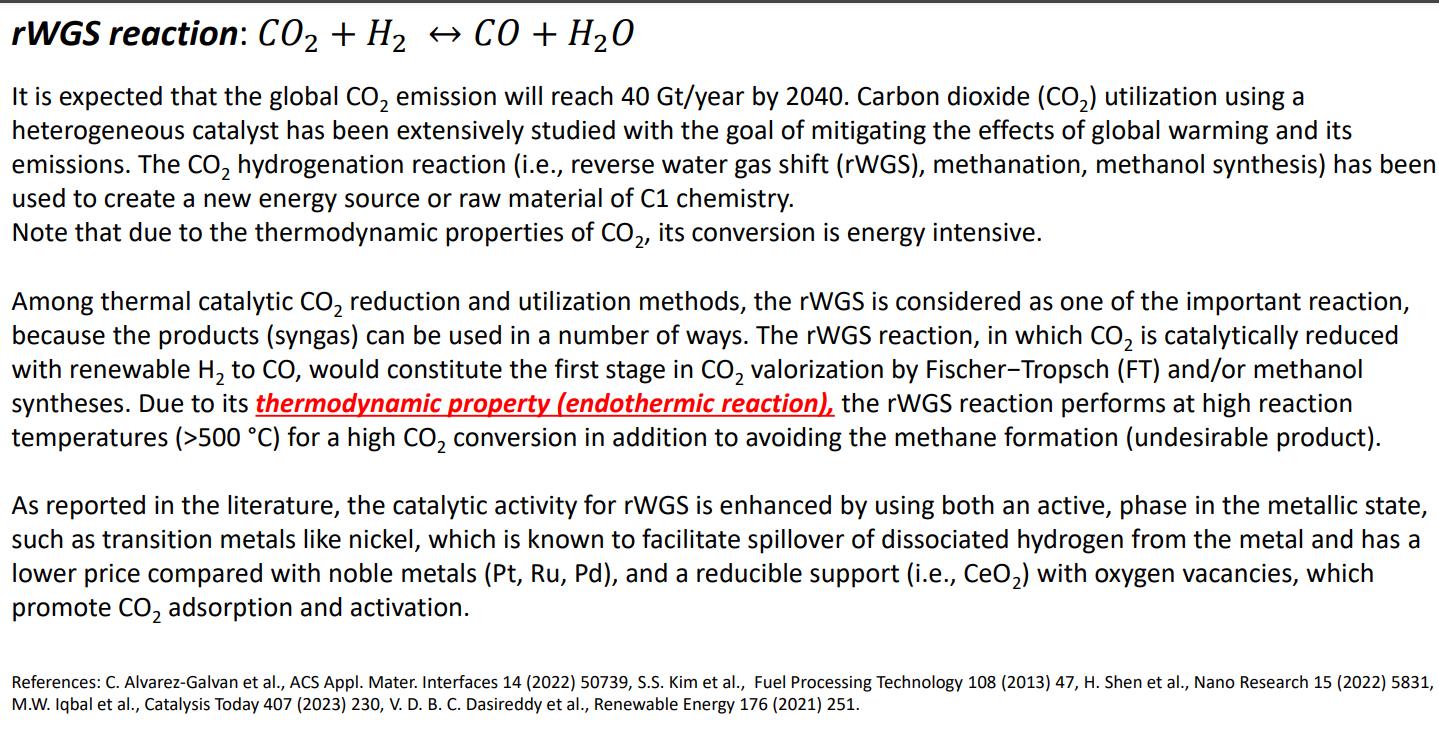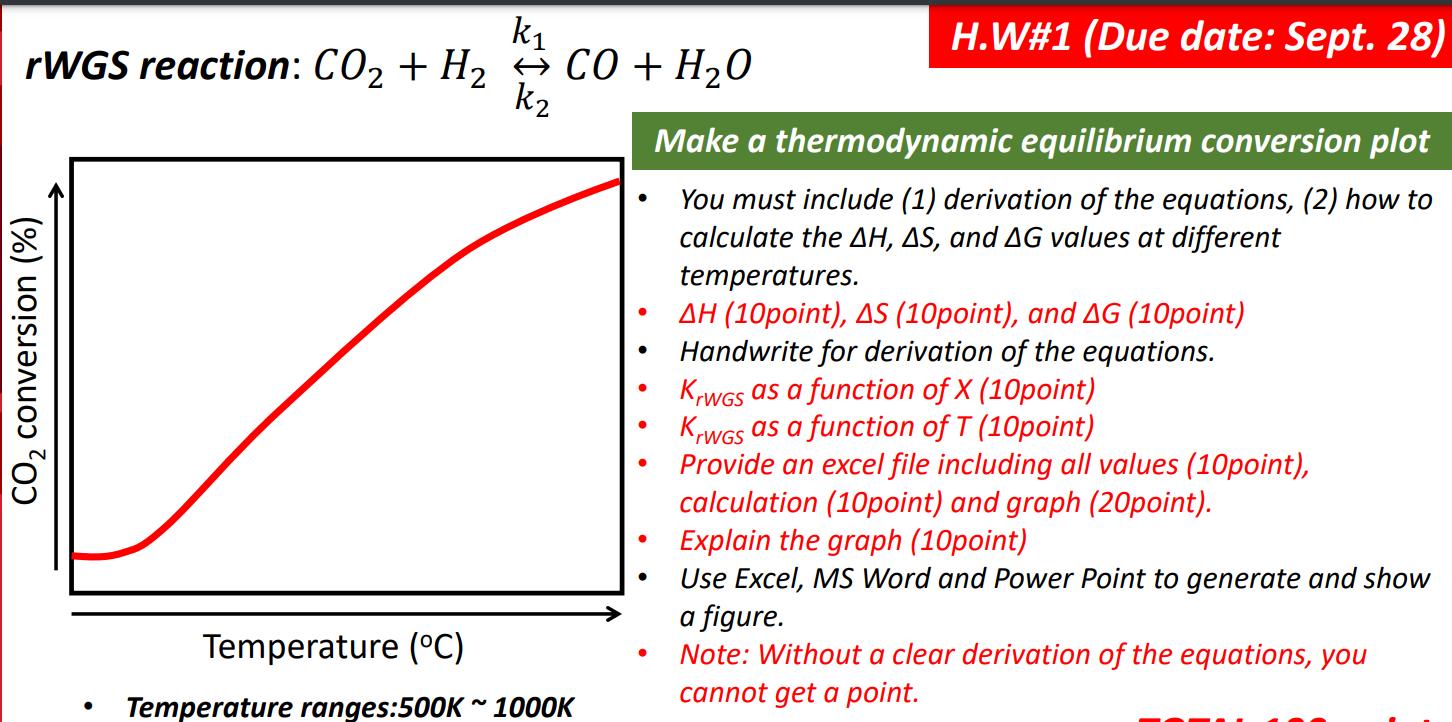Answered step by step
Verified Expert Solution
Question
1 Approved Answer
Please answer the catalysis problem in depth and as answer the red bullet points in details. Answer will be rated for accuracy and detail.u rWGS

 Please answer the catalysis problem in depth and as answer the red bullet points in details. Answer will be rated for accuracy and detail.u
Please answer the catalysis problem in depth and as answer the red bullet points in details. Answer will be rated for accuracy and detail.u rWGS reaction: CO2 + H2 CO + HO It is expected that the global CO2 emission will reach 40 Gt/year by 2040. Carbon dioxide (CO2) utilization using a heterogeneous catalyst has been extensively studied with the goal of mitigating the effects of global warming and its emissions. The CO2 hydrogenation reaction (i.e., reverse water gas shift (rWGS), methanation, methanol synthesis) has been used to create a new energy source or raw material of C1 chemistry. Note that due to the thermodynamic properties of CO2, its conversion is energy intensive. Among thermal catalytic CO2 reduction and utilization methods, the rWGS is considered as one of the important reaction, because the products (syngas) can be used in a number of ways. The rWGS reaction, in which CO2 is catalytically reduced with renewable H to CO, would constitute the first stage in CO2 valorization by Fischer-Tropsch (FT) and/or methanol syntheses. Due to its thermodynamic property (endothermic reaction), the rWGS reaction performs at high reaction temperatures (>500 C) for a high CO2 conversion in addition to avoiding the methane formation (undesirable product). As reported in the literature, the catalytic activity for rWGS is enhanced by using both an active, phase in the metallic state, such as transition metals like nickel, which is known to facilitate spillover of dissociated hydrogen from the metal and has a lower price compared with noble metals (Pt, Ru, Pd), and a reducible support (i.e., CeO2) with oxygen vacancies, which promote CO2 adsorption and activation. References: C. Alvarez-Galvan et al., ACS Appl. Mater. Interfaces 14 (2022) 50739, S.S. Kim et al., Fuel Processing Technology 108 (2013) 47, H. Shen et al., Nano Research 15 (2022) 5831, M.W. Iqbal et al., Catalysis Today 407 (2023) 230, V. D. B. C. Dasireddy et al., Renewable Energy 176 (2021) 251.
Step by Step Solution
There are 3 Steps involved in it
Step: 1

Get Instant Access to Expert-Tailored Solutions
See step-by-step solutions with expert insights and AI powered tools for academic success
Step: 2

Step: 3

Ace Your Homework with AI
Get the answers you need in no time with our AI-driven, step-by-step assistance
Get Started


